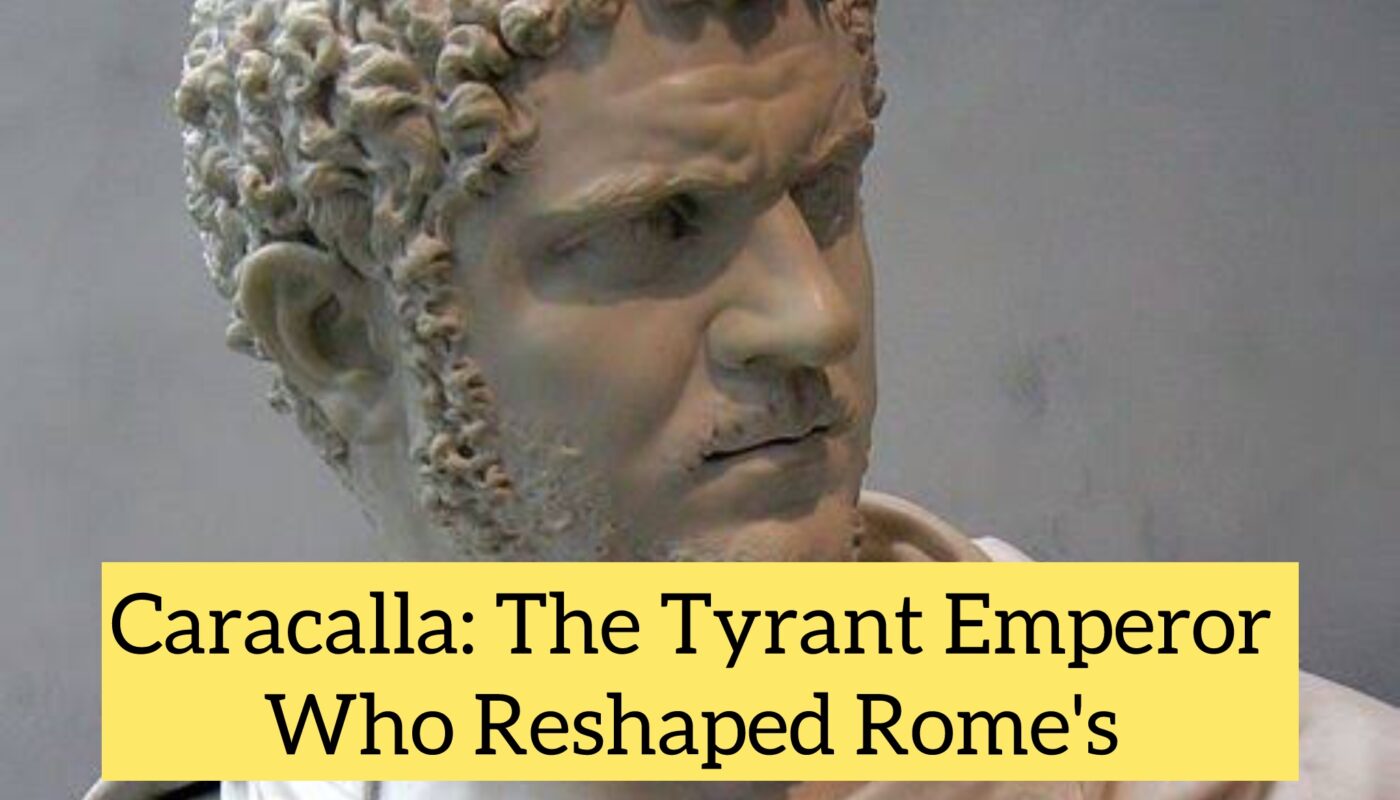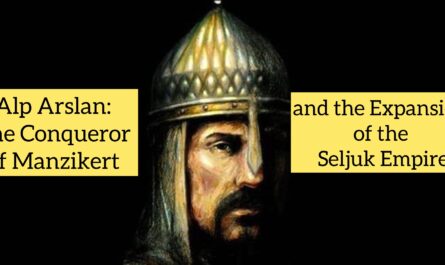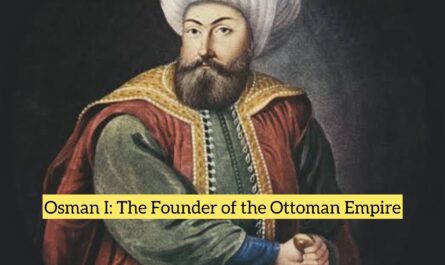Introduction
Caracalla, born Lucius Septimius Bassianus in 188 CE, ruled as Roman Emperor from 198 to 217 CE. Known for his brutality and autocratic rule, Caracalla is equally remembered for one of the most significant legal reforms in Roman history—the Constitutio Antoniniana, which granted Roman citizenship to nearly all free men in the empire.
His reign, marked by military ambition, political purges, and monumental construction, remains one of the most dramatic and violent periods in the Severan dynasty. Despite his infamous reputation, Caracalla’s policies and actions left lasting impacts on Roman governance, identity, and architecture.
Early Life and Background
Birth and Family
-
Born: April 4, 188 CE, in Lugdunum (modern-day Lyon, France)
-
Father: Septimius Severus, the first African-born Roman emperor
-
Mother: Julia Domna, a powerful Syrian noblewoman from Emesa
-
His birth name was Lucius Septimius Bassianus, but he was later renamed Marcus Aurelius Antoninus, associating him with the Antonine dynasty.
The Nickname “Caracalla”
The name Caracalla comes from a Gallic-style tunic he popularized, which became associated with him by contemporaries and later historians.
Rise to Power
Caracalla was made co-emperor with his father in 198 CE at the age of 10. His younger brother, Geta, became co-emperor in 209 CE, leading to escalating tensions between the siblings.
When Septimius Severus died in 211 CE during a campaign in Britain, Caracalla and Geta inherited the throne jointly. However, the co-rule quickly devolved into conflict.
Murder of Geta
In December 211 CE, Caracalla orchestrated the murder of Geta, reportedly in the arms of their mother. Following the fratricide, Caracalla initiated a brutal purge:
-
Over 20,000 people were executed or exiled for sympathizing with Geta
-
All portraits and names of Geta were erased from public monuments—an act known as damnatio memoriae
This event cemented Caracalla’s reputation for cruelty and paranoia.
Rule and Policies
Constitutio Antoniniana (Edict of Caracalla) – 212 CE
One of Caracalla’s most significant and enduring achievements was this universal citizenship decree:
-
Granted Roman citizenship to all free men across the empire
-
Made all free women the legal equivalent of Roman matrons
-
Prior to this, citizenship was limited and came with elite privileges
Motivations:
-
To increase tax revenue, especially inheritance and manumission taxes
-
To bolster military recruitment
-
To create a more unified imperial identity
This edict transformed Roman identity, effectively ending the distinction between Romans and provincials.
Military Campaigns
Caracalla styled himself as a soldier-emperor:
-
Increased the pay of legionaries from 2,000 to 3,000 denarii annually
-
Spent much of his reign on military campaigns, particularly in the Germanic frontier and East
Germanic Campaigns
-
Fought against the Alamanni in modern-day Germany (213 CE)
-
Adopted Germanic styles and promoted himself as a fierce warrior
Parthian Campaign
-
In 216 CE, he launched a campaign against the Parthian Empire
-
Tried to marry into the Parthian royal family, but was rejected
-
Invaded and massacred towns, but achieved no lasting victory
Monumental Architecture
Despite his militarism and brutality, Caracalla left behind impressive architectural legacies:
Baths of Caracalla (Thermae Antoninianae)
-
Built between 211 and 217 CE in Rome
-
Second-largest public baths in ancient Rome
-
Featured hot and cold baths, gyms, libraries, gardens, and mosaic floors
-
An enduring symbol of Roman luxury and engineering prowess
These baths could accommodate over 1,500 people at once, showcasing imperial grandeur and public service.
Personality and Legacy
Caracalla was often described by ancient historians as:
-
Cruel, paranoid, and egotistical
-
Obsessed with Alexander the Great, often emulating his appearance and style
-
Beloved by soldiers, but feared and hated by senators and elites
He surrounded himself with bodyguards, rarely trusted advisors, and ruled with an iron fist.
Assassination and Death
Caracalla was assassinated on April 8, 217 CE, near Carrhae (in modern-day Turkey) during a campaign in the East.
Circumstances
-
Murdered by a soldier named Justin Martialis, possibly on the orders of Macrinus, the head of the Praetorian Guard
-
Caracalla was reportedly urinating on the roadside when attacked
Aftermath
-
Macrinus declared himself emperor—the first emperor who was not from the senatorial class
-
Caracalla was deified by the army but condemned by the Senate
Impact and Legacy
Political
-
Caracalla’s reign accelerated the militarization of the Roman Empire
-
The Constitutio Antoniniana permanently changed the legal status of millions
-
His reliance on military loyalty over senatorial approval became a model for later soldier-emperors
Cultural
-
Left behind lasting architectural wonders like the Baths of Caracalla
-
Promoted a pan-imperial identity with the citizenship edict
Historical Reputation
-
Ancient sources like Cassius Dio, Herodian, and the Historia Augusta are highly critical
-
Modern scholars debate the fairness of his legacy, noting both his brutality and his groundbreaking reforms
Key Facts About Caracalla
| Attribute | Details |
|---|---|
| Full Name | Marcus Aurelius Severus Antoninus Augustus |
| Reign | 198–217 CE (sole emperor from 211 CE) |
| Born | April 4, 188 CE |
| Died | April 8, 217 CE |
| Dynasty | Severan |
| Major Reforms | Constitutio Antoniniana (Roman citizenship to all free men) |
| Famous Construction | Baths of Caracalla |
| Sibling | Geta (co-emperor, murdered by Caracalla) |
| Successor | Macrinus |
Timeline of Major Events
| Year | Event |
|---|---|
| 188 CE | Caracalla is born in Lugdunum |
| 198 CE | Becomes co-emperor with his father Septimius Severus |
| 209 CE | Geta becomes co-emperor |
| 211 CE | Septimius Severus dies; Caracalla and Geta co-rule |
| 211 CE | Caracalla murders Geta and purges his supporters |
| 212 CE | Issues the Constitutio Antoniniana |
| 213–216 CE | Military campaigns in Germany and Parthia |
| 217 CE | Assassinated near Carrhae |
Conclusion
Caracalla remains one of the most complex and divisive emperors in Roman history. Though his rule was stained by violence, tyranny, and paranoia, he also enacted reforms that transformed the Roman world forever. The extension of Roman citizenship, the monumental baths, and his military zeal left a deep mark on Rome’s imperial legacy.
Today, Caracalla is remembered as a paradox: a brutal ruler who nonetheless helped shape a more unified and inclusive empire.
Frequently Asked Questions (FAQs)
What is Caracalla best known for?
He is best known for the Constitutio Antoniniana, which granted Roman citizenship to nearly all free men in the empire.
Why was Caracalla considered a tyrant?
He murdered his brother Geta, launched purges, and ruled with extreme cruelty and paranoia.
What are the Baths of Caracalla?
A massive public bath complex in Rome built during his reign, showcasing Roman engineering and luxury.
How did Caracalla die?
He was assassinated by a soldier in 217 CE, likely under the orders of Macrinus.
Was Caracalla a good emperor?
Opinions are mixed—he made transformative reforms but ruled with brutality and fear.



